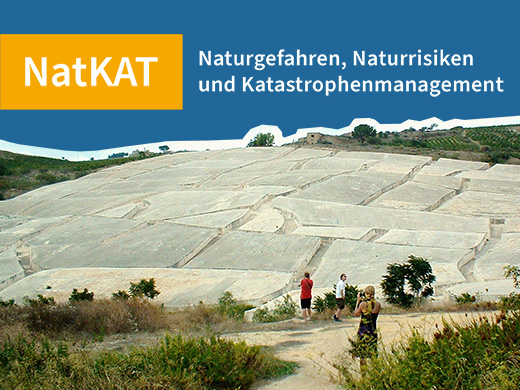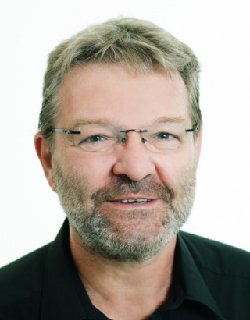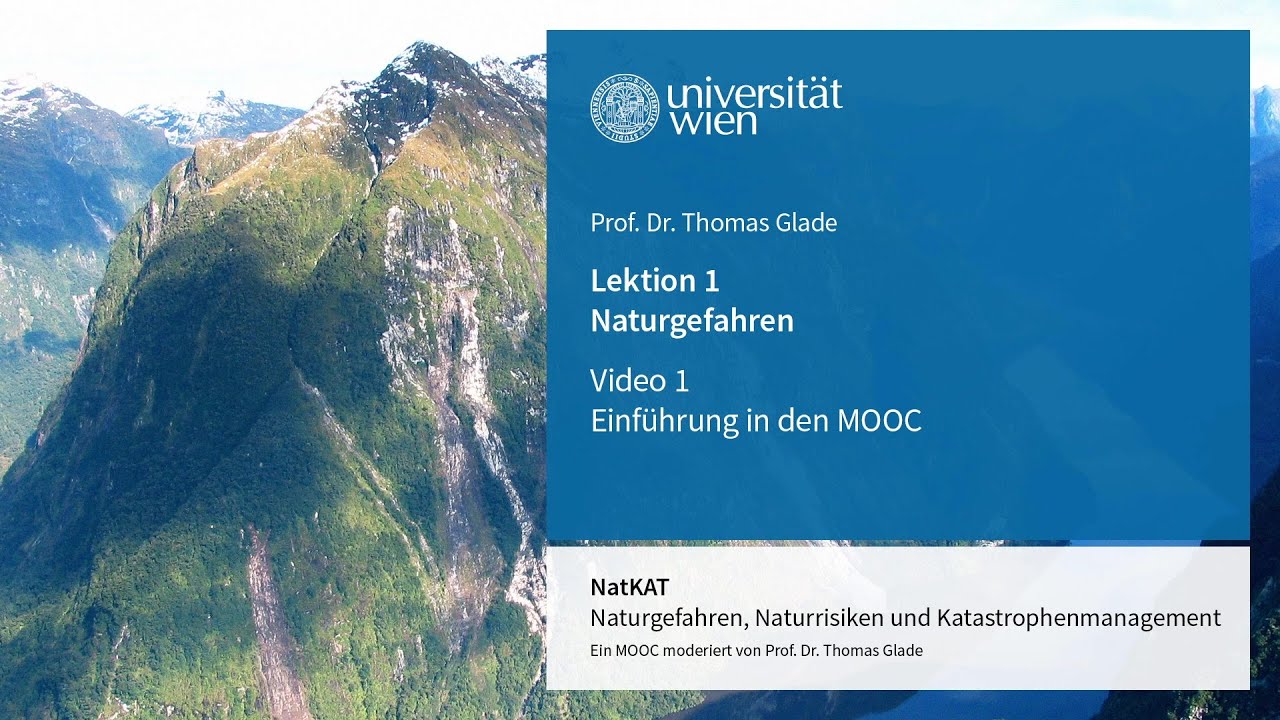

DE
Do nauki samodzielnej

NatKAT - Natural hazards, natural risks and disaster management
University of Vienna
Prof. Dr. Thomas Glade
Informacje o
Czas trwania
5 units
Jednostka kursu
4 hours/unit
Licencja
CC BY-SA 4.0
Uczestnicy
733
Dostępność
Nieograniczony
Data rozpoczęcia
12 czerwca 2023
Koszt
€ 0.00
Zwiastun kursu NatKAT - Natural hazards, natural risks and disaster management
Treść
Treść kursu
Natural hazards are ubiquitous in our environment, past, present, and they will remain so in the future. Representative of such disasters, we would like this course to contribute to a better understanding of the general natural and social foundations, to identify the interrelationships and interactions in order to promote options of sustainable management strategies.Cele kursu
Upon completion of the MOOC, learners will be able to ...- understand and name basic relationships in the context of natural hazards, natural risks and disaster management, e.g., interactions in the relationships between different natural hazards, their consequences and the potential management options.
- name and understand relevant theories and concepts, e.g., risk governance.
- name causes of natural hazards at different spatial/temporal scales.
- understand potential impacts of these processes on various sectors of society (e.g., economy, spatial planning, critical infrastructure).
- understand and name different management options in terms of the risk cycle, including direct aftercare (event management, reconstruction) and active preparedness (prevention, preparedness), with a particular focus on prevention.
Wymagana wiedza wstępna
No prior knowledge is required for participation. Knowledge of English is an advantage for some of the literature references.Procedura kursu
You can expect exciting and varied lectures and interviews with selected experts. This will provide you with comprehensive insights into the inter-, intra-, trans- and multidisciplinary perspectives on the topic of natural hazards, natural risks and disaster management. The MOOC consists of 5 lessons, each lesson dealing in depth with the respective topics:
Lesson 1: Natural Hazards
Lesson 2: Interactions and extreme events
Lesson 3: Vulnerabilities and Resilience
Lesson 4: Prevention
Lesson 5: Disaster Management
Certyfikat
For actively participating in the course you will receive an automatic certificate which includes your username, the course name as well as the completed lessons. We want to point out that this certificate merely confirms that the user answered at least 75% of the self-assessment questions correctly.Licencja
This work is licensed under CC-BY-SA 4.0.Kursübersicht
- Lektion 1: Naturgefahren
- Naturgefahren, Naturrisiken und Katastrophenmanagement – Einführung
- Naturgefahren – Einführung
- Naturgefahren – Setting the Scene
- Naturgefahren – Globaler Wandel
- Naturgefahren – Hydrometeorologische Naturgefahren
- Naturgefahren – Geophysikalische Naturgefahren
- Naturgefahren – Biologische Naturgefahren
- Naturgefahren – Krysophärische Naturgefahren
- Naturgefahren – Rückblick
- Lektion 2: Wechselwirkungen und Extremereignisse
- Wechselwirkung und Extremereignisse – Einführung
- Wechselwirkung und Extremereignisse – Extremereignisse
- Wechselwirkung und Extremereignisse – Multigefahreneffekte
- Wechselwirkung und Extremereignisse – Das Anthropozän
- Wechselwirkung und Extremereignisse – Rückblick
- Lektion 3: Vulnerabilitäten und Resilienz
- Vulnerabilitäten und Resilienz – Einführung
- Vulnerabilitäten und Resilienz – Vulnerabilität
- Vulnerabilitäten und Resilienz – Resilienzen
- Vulnerabilitäten und Resilienz – Facetten
- Vulnerabilitäten und Resilienz – Beispiele
- Vulnerabilitäten und Resilienz – Diskussion
- Vulnerabilitäten und Resilienz – Rückblick
- Lektion 4: Prävention
- Prävention – Einführung
- Prävention – Präventives Katastrophenmanagement
- Prävention – Das „Unbekannte“ – Möglichkeiten der Prävention
- Prävention – Risikobasiertes Katastrophenmanagement
- Prävention – Rückblick
- Lektion 5: Katastrophenmanagement
- Katastrophenmanagement: Risiko-Governance – der neue Ansatz
- Katastrophenmanagement: Was definiert eine Katastrophe?
- Katastrophenmanagement: Sozialwissenschaftliche Grundlagen
- Katastrophenmanagement: Risikozyklus und Risiko-Governance
- Katastrophenmanagement: Rückblick
- MOOC Rückblick
Copyright
Source course picture: Cretto von Alberto Burri, Gibellina, Sizilien, Copyright: Thomas Glade, CC BY-SA 4.0, Source: own recording, Editing by CTL: colour adjustments, retouching, adding text and graphic elements.
Note: The references must be retained if the licensed material is reproduced and/or distributed in whole or in part, or if modified material is created, reproduced, and/or distributed.
Osoba prowadząca kurs

Prof. Dr. Thomas Glade
Prof. Dr. Thomas Glade is Professor of Physical Geography at the University of Vienna with a focus on geomorphological systems and risk research. In his research he has specialized on landslides. Furthermore, he conducts research on consequences of natural hazards on socio-economic systems in terms of risks and disasters. In addition to teaching in consecutive degree programs, extra-occupational training is very important to him - since 2013 he has been leading the extra occupational MSc. Program OeRISK - Risk Prevention and Disaster Management, which is established at the University of Vienna's Postgraduate Center.
For more information click here.
Lecturers
Dr. Philipp Marr
Senior Scientist, Institute of Geography and Regional Research, Working Group ENGAGE - Geomorphological Systems and Risk Research, University of Vienna, Austria
Dr. Sabine Kraushaar
Institute of Geography and Regional Research, Working Group ENGAGE - Geomorphological Systems and Risk Research, University of Vienna, Austria
Prof. Dr. Jan Blöthe
Institute of Environmental Social Sciences and Geography, Head of the Geomorphology and Recent Morphodynamics Working Group, Albert Ludwigs University Freiburg, Germany
Dr. Ronald Pöppl
Institute of Geography and Regional Research, ENGAGE - Geomorphological Systems and Risk Research Group, University of Vienna, Austria
Univ.-Lek. Kons. Mag. Dr. Johannes Thomas Weidinger
Director of the Kammerhof Museum, Gmunden, Austria
Prof. Dr. Kerstin Krellenberg
Institute for Geography and Regional Research, Head of the Urban Studies Group, University of Vienna, Austria
Dr. Gunnar Stange
Institute of Geography and Regional Research, Population Geography and Demography Working Group, University of Vienna, Austria
Zaloguj się i zapisz Obecnie: 733 Uczestnicy
Bezpłatny dla wszystkich € 0.00
Partnerzy
Interview partners
Prof. Dr. Michael Krautblatter, Head of the Working Group Slope Movements, Technical University of Munich, Germany
Prof. emeritus Dr. Wilfried Haeberli, Professor emeritus of Physical Geography, University of Zurich, SwitzerlandProf. Dr. Michael Wagreich, Institute of Geology, University of Vienna, Austria
PD Dr. Sven Fuchs, Senior Scientist, Institute for Alpine Natural Hazards, University of Natural Resources and Applied Life Sciences, Vienna, Austria
Robert Stocker, MBA, Head of State Crisis and Disaster Management and Civil Security Coordination, Federal Ministry of the Interior (BM.I), Vienna, Austria
Dr. Andreas Schaffhauser, Interim Director of ZAMG, Central Institute for Meteorology and Geodynamics, Vienna, Austria
Prof. Dr. Stefan Greiving, Faculty of Spatial Planning, Head of IRPUD, TU Dortmund University, Germany
Prof. Dr. Wolf R. Dombrowsky, Steinbeis University Berlin, Germany
Prof. Dr. Christian Kuhlicke, Head of the Department of Urban and Environmental Sociology (UFZ), Head of the Working Group Environmental Risks and Extreme Events, University of Potsdam, Germany
Prof. Dr. Martin Voss, Institute for Social and Cultural Anthropology, Head of the Disaster Research Center (KFS), FU Berlin, Germany
PD Dr. Florian Rudolf-Miklau, Head of the Department of Torrent and Avalanche Control and Protection Forest Policy (WLV), Federal Ministry of Agriculture, Forestry, Regions and Water Management, Vienna, Austria
Acknowledgment
Mag. Stefan Haselberger, PhD student, Institute of Geography and Regional Research, Working Group ENGAGE - Geomorphological Systems and Risk Research, University of Vienna, Austria
BSc Jonas Machold, student assistant, Institute of Geography and Regional Research, Working Group ENGAGE - Geomorphological Systems and Risk Research, University of Vienna, Austria
Prof. Dr. Martin Mergili, Institute of Geography and Regional Research, Working Group Cascade - Mountain processes and mountain hazards, University of Graz, Austria
And finally, we would also like to thank the entire team of the Center for Teaching and Learning (University of Vienna), who supported us so energetically and persistently in the creation of the MOOC.

University of Vienna
Wien
16742
Uczestnicy
25
Kursy
Średnia ocena
